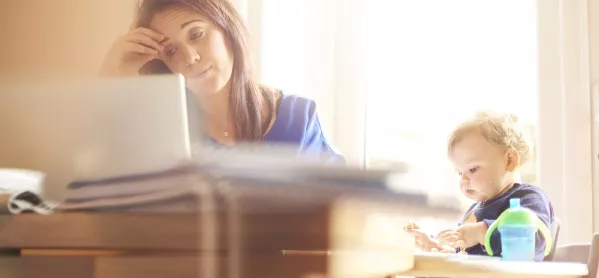The disruption caused by the coronavirus crisis increased teachers’ workload and negatively affected their wellbeing, according to survey findings.
Half of teachers responding to a survey by the Chartered College of Teaching looking at the impact of Covid-19 on teachers and pupils said their workload had increased during the time schools were closed to most students.
Nearly two in three teachers (64 per cent) said their wellbeing had taken a hit during the pandemic.
A similar proportion (61 per cent) said they were struggling with work-life balance, with many finding it more difficult to juggle work and home life than pre-lockdown.
Research: Cutting teacher workload ‘improves pupil outcomes’
Coronavirus: Teacher workload means ‘Ofsted must cease’
School closures: 5 changes teachers want to keep
Some teachers found themselves balancing distance learning, key worker provision, additional administrative tasks, homeschooling their own children or caring for vulnerable family members, creating an “unsustainable” increase in workload, the report states.
One respondent commented: “Colleagues are setting work online, teaching live lessons via Teams and also in school all at the same time. Workload has increased hugely. Learners and staff are largely left to develop their own strategies for dealing with what is essentially an ongoing trauma situation and this is enormously worrying.”
Asked for suggestions to decrease their workload, teachers pointed to employing external agencies to conduct regular home visits to ensure children’s safety and also increased support from local authorities.
Continuing face-to-face teaching alongside online provision was generally regarded as unmanageable without additional staffing.
However, a quarter of respondents said they found it easier to juggle work and family commitments.
While the data does not provide any insights into the reason for this, the report suggested it may be down to a lack of commute and increased support within the family.
Teachers also commented that teaching remotely involved less paperwork and marking, and some questioned whether returning to these practices would have a beneficial impact on student learning.
The survey was conducted between May and June 2020 and analysed responses from nearly 1,800 members of the Chartered College of Teaching and discussions from six focus groups.
The Chartered College of Teaching has also launched today a campaign inviting teachers to reflect on the immediate and long-term changes needed in the teaching profession.
Named #FutureOfTeaching, the year-long initiative will see conversations supported by the Education Exchange - a free platform providing opportunities for discussion, reflection and sharing resources around the world.




